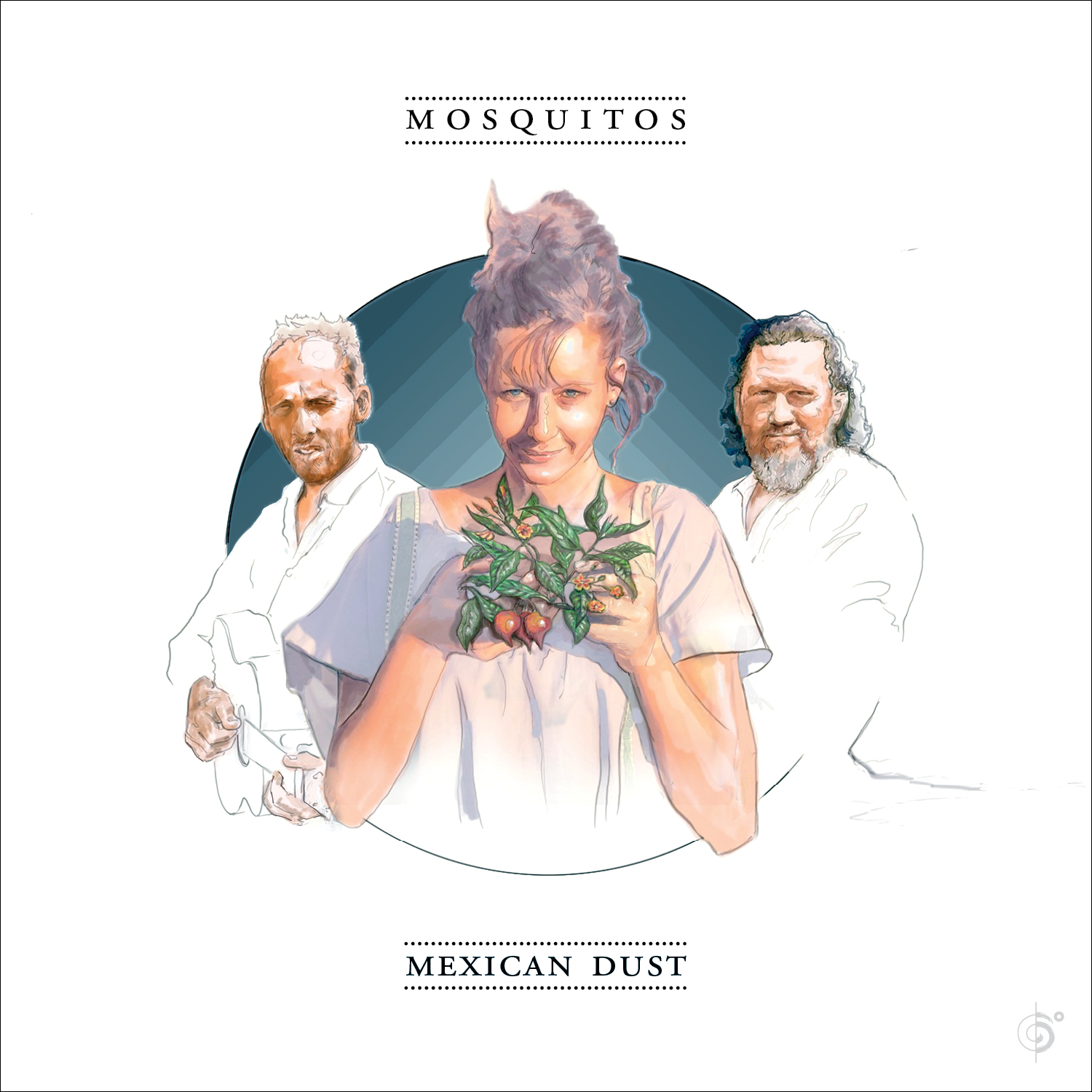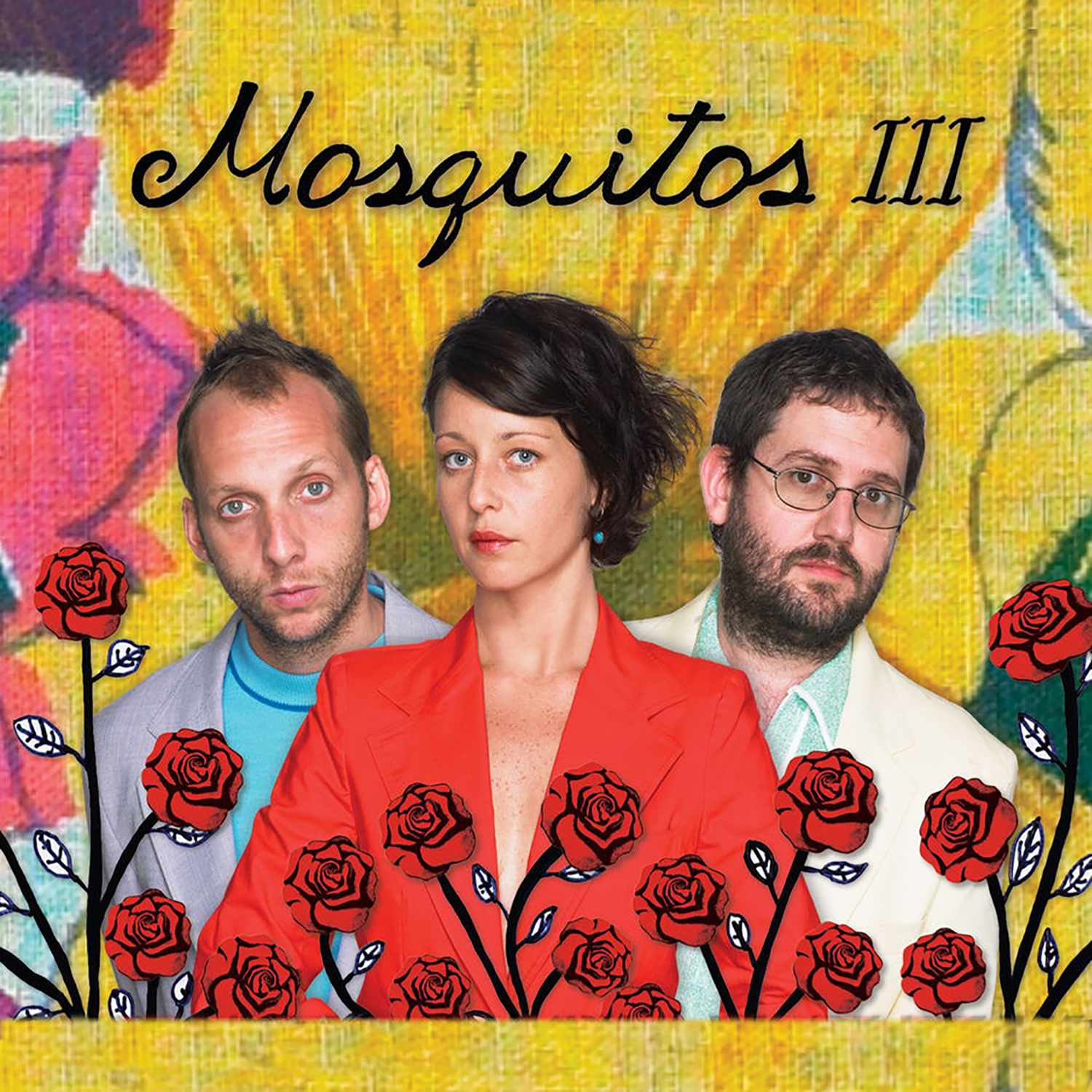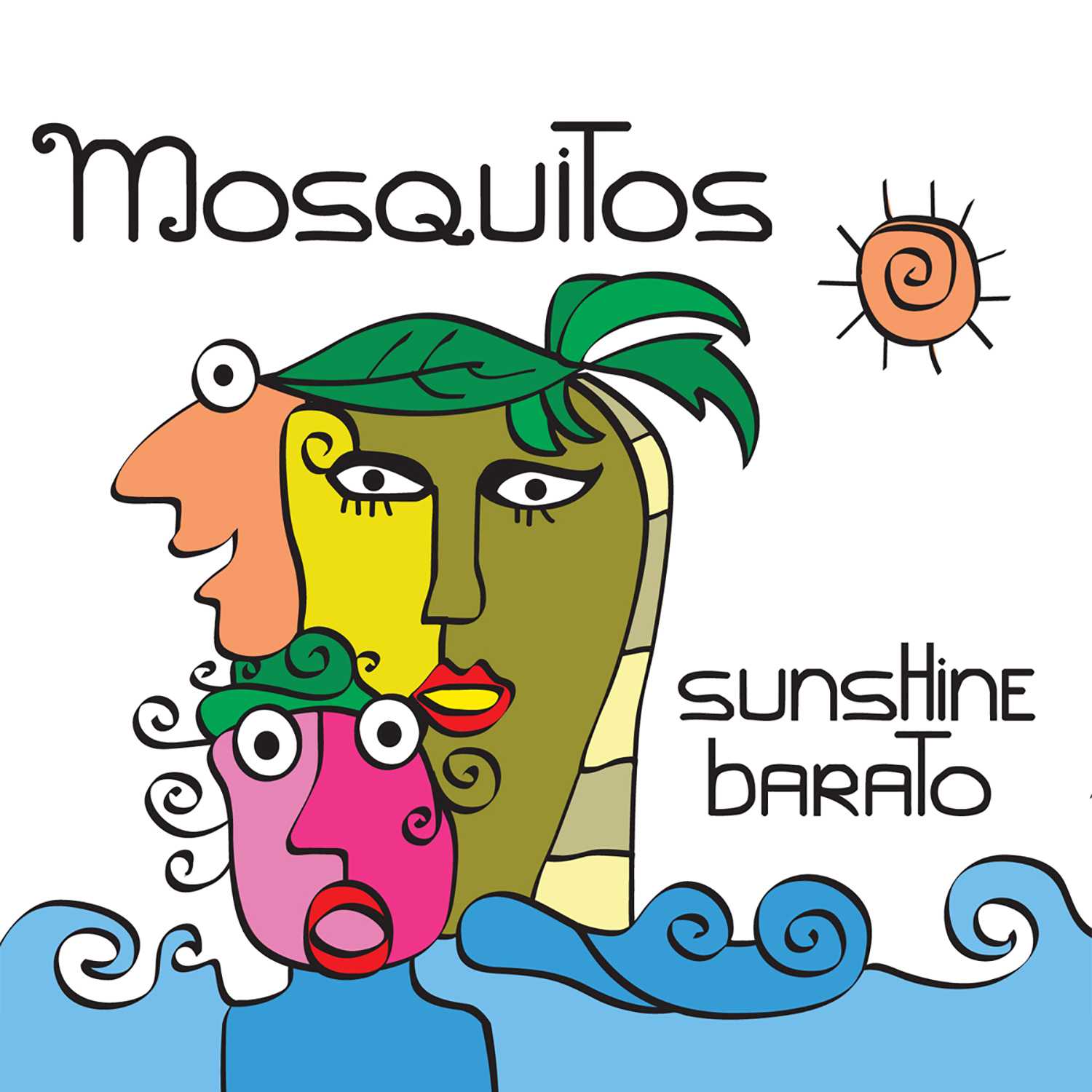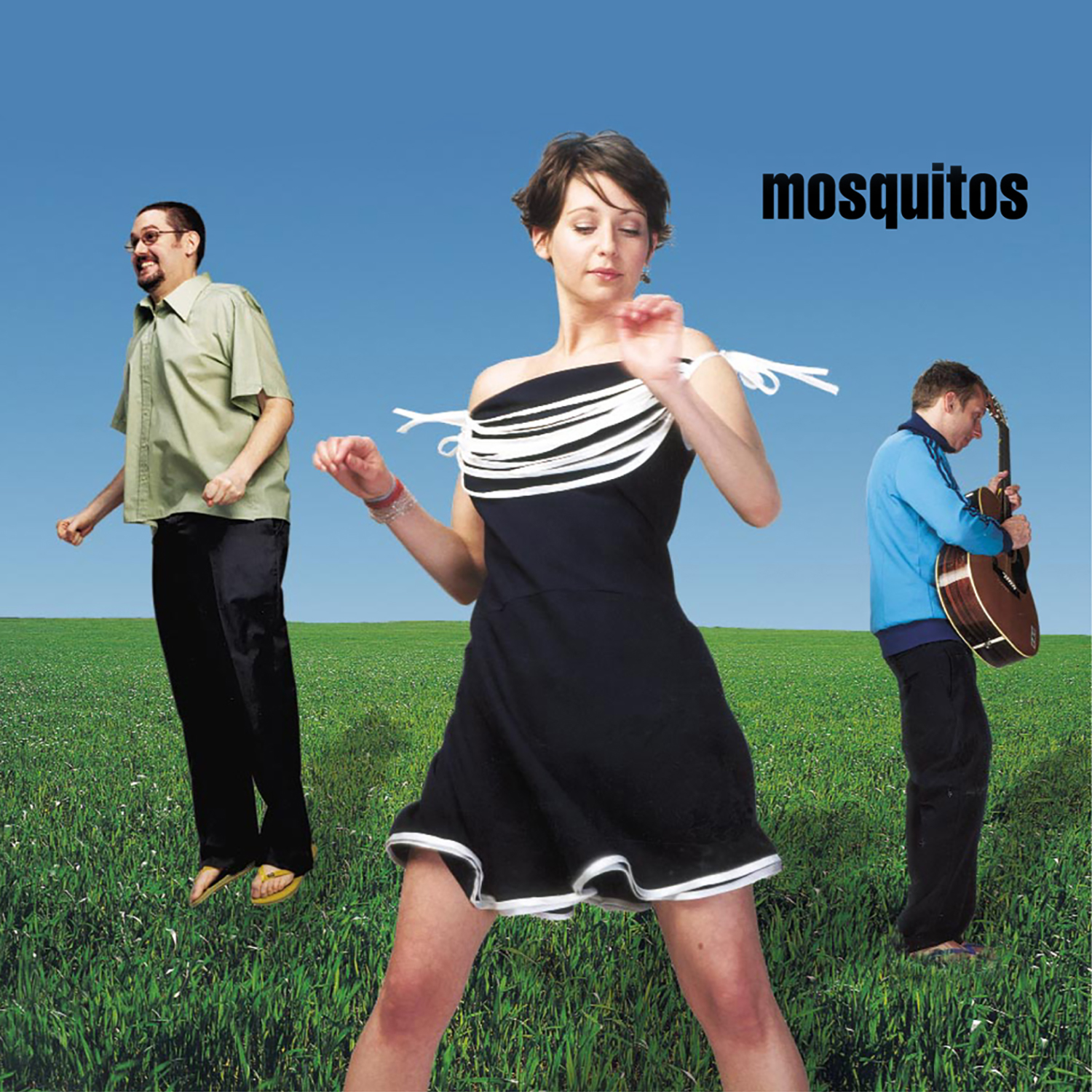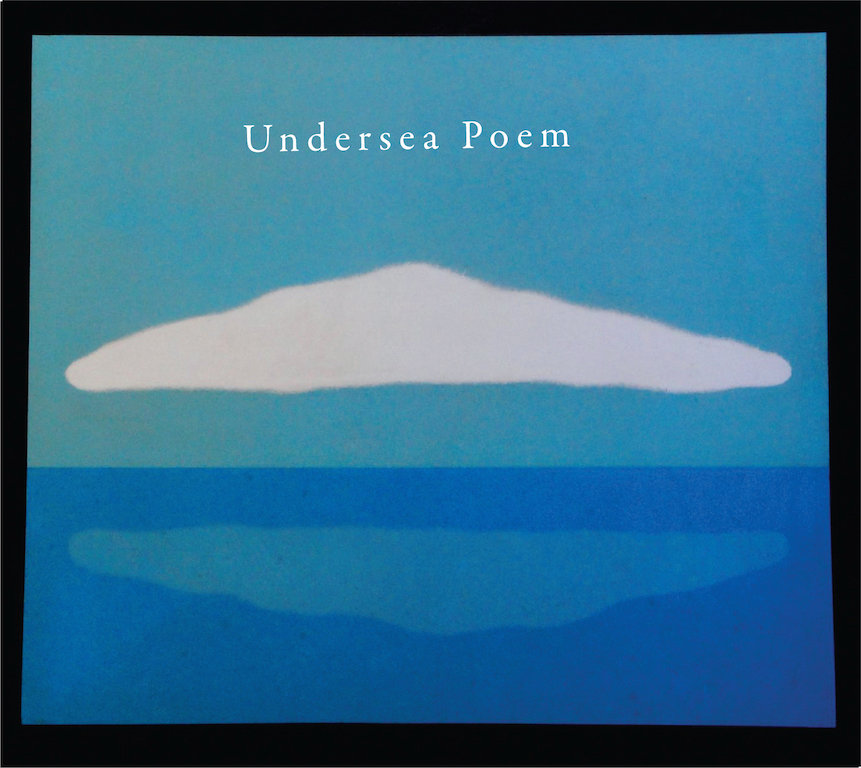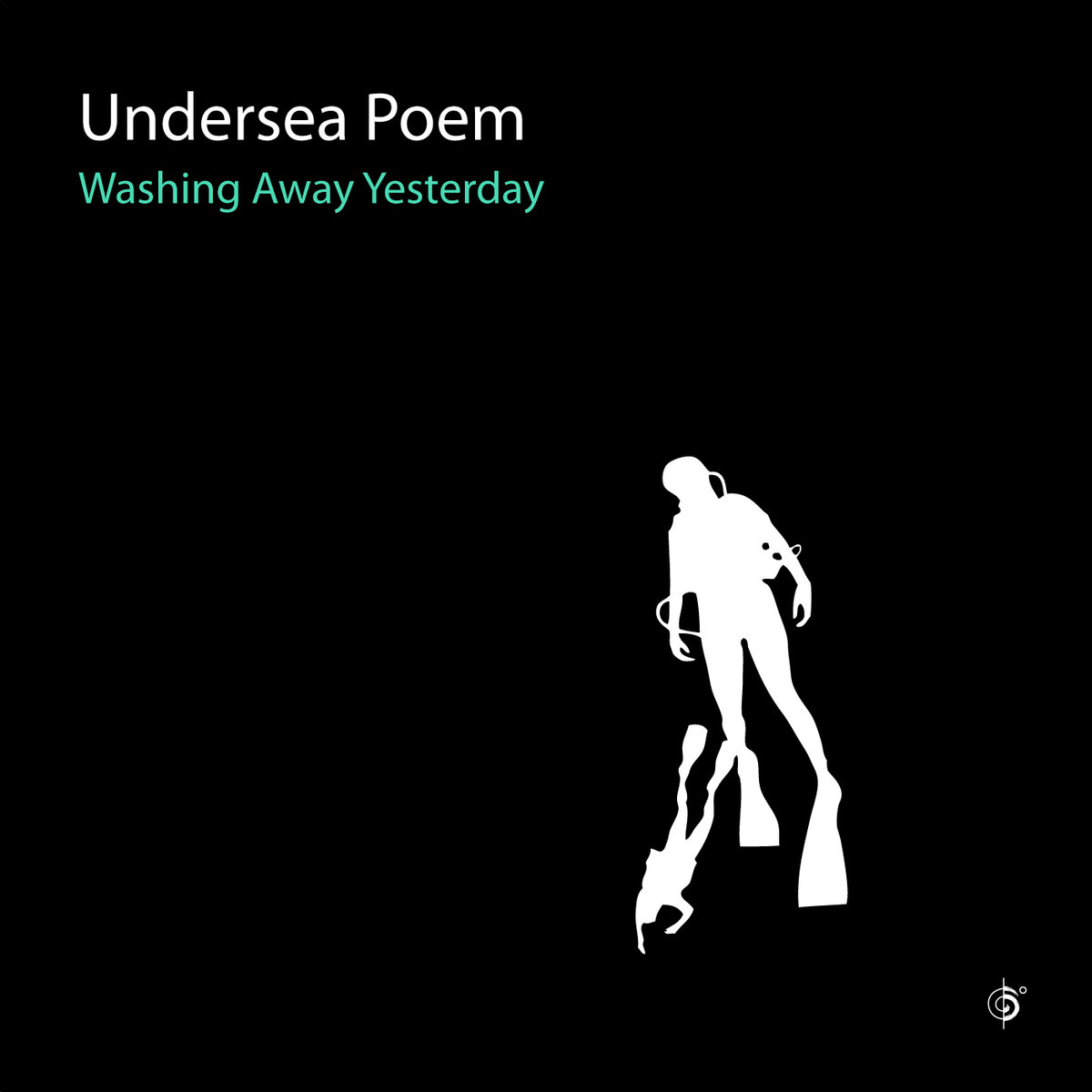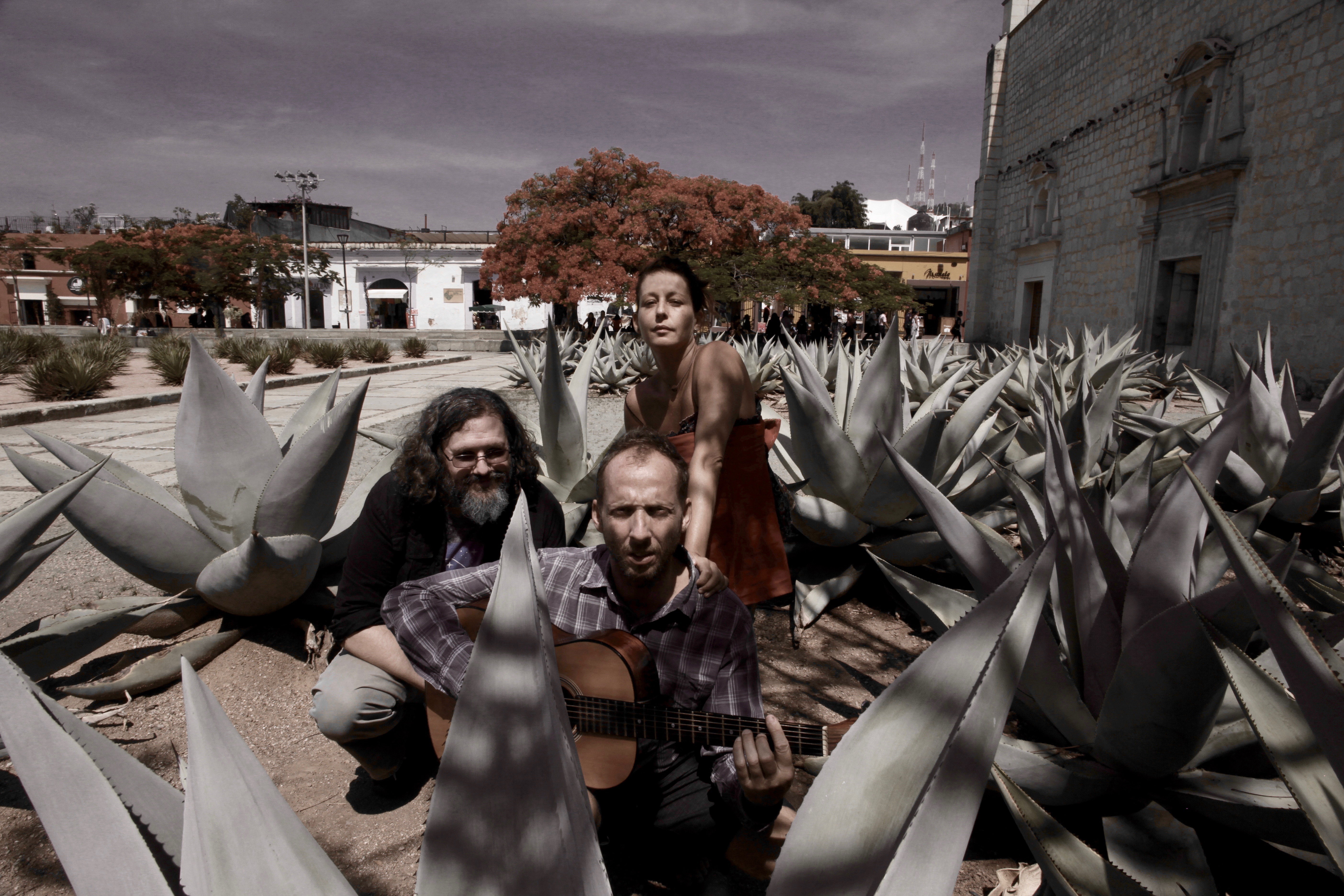
MOSQUITOS
Mosquitos – singer Juju Stulbach, singer and multi-instrumentalist Chris Root, keyboardist-programmer Jon Marshall Smith — are musical nomads whose songs occupy a mythical place somewhere between Brooklyn and Brazil. Mexican Dust is the trio’s fourth album, its first after a ten-year hiatus. However, the passage of time hasn’t changed Mosquitos’ sound. It’s always existed in a sweet, special place, somewhere sunny and off the beaten path, with a unique blend of Brazilian influences, American pop smarts and witty, oddball arrangements. Mexican Dust, produced by Michael Leonhart and Mosquitos, is perhaps the most geographically specific of their discs, its wistful songs shaped by the years Stulbach and Root have spent in Puerto Escondido, Oaxaca.
The Brazilian Stulbach and Philadelphia native Root met fifteen years ago on the set of a New York City film shoot, but their relationship developed in Brazil, with the beaches of Rio de Janeiro as a back drop. Root had followed Stulbach there and began to chronicle their courtship in song, cutting rudimentary tracks in a tiny Rio studio. Back in Manhattan, he enlisted programming whiz and producer Smith to help him flesh out the tunes for what would be the trio’s debut disc – and thus a band was serendipitously born. Two albums followed in relatively quick succession, Sunshine Barato and III. Mosquitos’ songs continued to incorporate autobiographical elements drawn from Root’s and Stulbach’s adventures, as they alternated between New York City and Brazil. Stulbach and Root eventually made Mexico their second home. Smith, in the meantime, had moved to the mountains of North Carolina with his wife, where he mixed and mastered other artists’ albums at his home studio and learned to fly a plane.
With the future of the Mosquitos uncertain, Stulbach and Root began to channel the feeling of their sun-kissed life into dreamy, sensual songs they eventually released as a duo under the name Undersea Poem; Six Degrees put out an album in 2010; an EP followed shortly thereafter. An out-of-the-blue offer for Mosquitos to contribute a song to an indie rock tribute album for the 30th anniversary of Fraggle Rock got Root and Smith talking about the band again. They were inspired to brainstorm long-distance on the songs that would comprise Mexican Dust. Says Root, “It was so much fun. We started it here in Mexico and sent it to Jon, and then he would add stuff. We had a ball. We said, ‘let’s keep writing,’ so we started sending tracks back and forth. Jon did all his keyboard parts in North Carolina, I brought them all to New York, and he added more stuff after.”
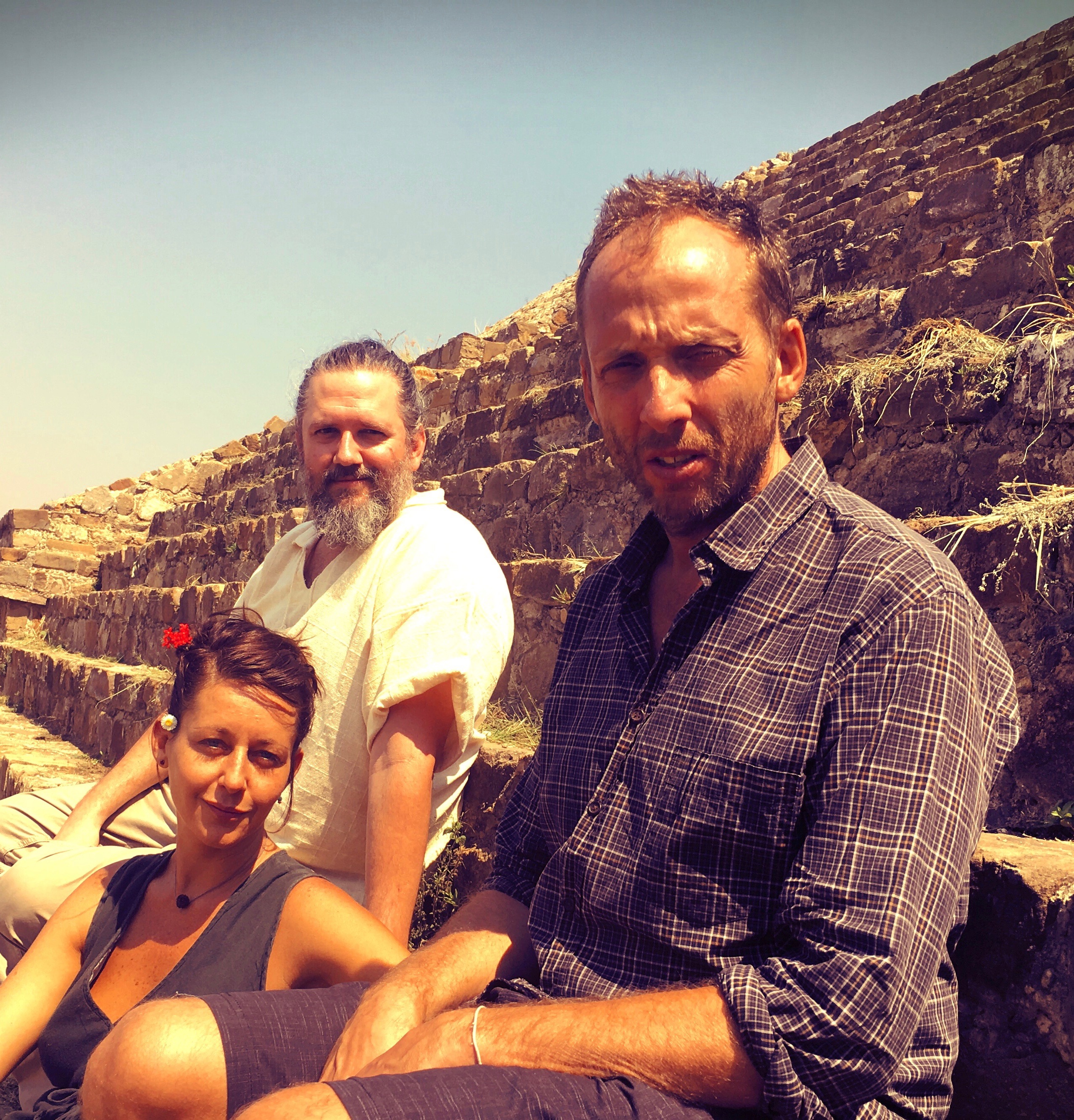
Root had constructed a small studio in Mexico, which he, Stulbach, and various local and visiting musicians used. At a certain point in the back-and-forth process, though, Root and Stulbach realized they could benefit from a different environment, a new energy – they needed to travel, not just correspond – and that’s when they returned to New York City. They called upon their friend, Michael Leonhart, the trumpeter, arranger and producer whose evocative playing was a highlight of the Undersea Poem album. Leonhart has a small studio in Manhattan’s West Village, “packed to the ceiling with instruments and records,” says Root. “It’s a magical place.” Leonhart has for years been a sideman on Steely Dan’s tours and has recorded with artists ranging from A Tribe Called Quest to Yoko Ono. He’s even on the Mark Ronson-Bruno Mars jam, “Uptown Funk.” Leonhart assumed the role of arranger-producer as well as performer on Mexican Dust, bringing in string and horn players and other musicians to help Mosquitos complete the project.
“I find Juju and Chris to be incredibly earnest friends and artists, always searching for new ways of pushing their own boundaries and self-expression. They are naturally gifted songwriters who together with Jon have created this unique micro-universe of tropicalia-punk-folk. It was a dream to write and work with them,” says Leonhart. Adds Stulbach, “We came up with a lot of ideas at Michael’s studio, improvising. That’s how ‘Azulando’ happened” – a track that, ironically, sounds as if it could have been recorded at the beach, the band gathered round a bonfire. After those New York City sessions, Root and Stulbach went back to Mexico, but the process wasn’t quite complete.
“The album was supposed to be done at that point,” Root explains, “but it didn’t feel finished. So I flew to North Carolina from Mexico and Jon and I mixed it together.”
For Smith, that was the highlight of the project, bridging the physical distance between them: “It’s always fun to dust off the synthesizers and make some bleeps and bloops. Also very interesting –and perhaps liberating– handing the production reins to someone else. The most memorable part of the record for me was Chris coming to my mountain home for a few days to mix.”
A recurring theme on Mexican Dust is the search for a home, one that Stulbach as lyricist addresses head-on in “This Town,” a sudden yearning for her frenetic New York City streets, and in “Estrangeira.” And she touches on it more amusingly in “Island in the Bathtub,” where a kitten perches precariously on her chest, safe from the water below.
“There is always a sense of humor, I think, in our music,” Stulbach admits, “but if you look to the lyrics on the record you will find us, frankly, a little bit lost, looking for a home. ‘Estrangeira’ is Portuguese for ‘foreigner,’ because I felt like a foreigner everywhere. The album was a little bit of us trying to look for home – in Brazil, New York, Mexico. The element of dust is important – we weren’t really planted anywhere. I think that’s why we built our house. We needed some roots. But we found out that doesn’t really give you roots. Those are in your heart.”
And, for Mosquitos – who, after countless miles and several years, have affably reunited for Mexican Dust – there are impressively sturdy roots in the music too. – Michael Hill
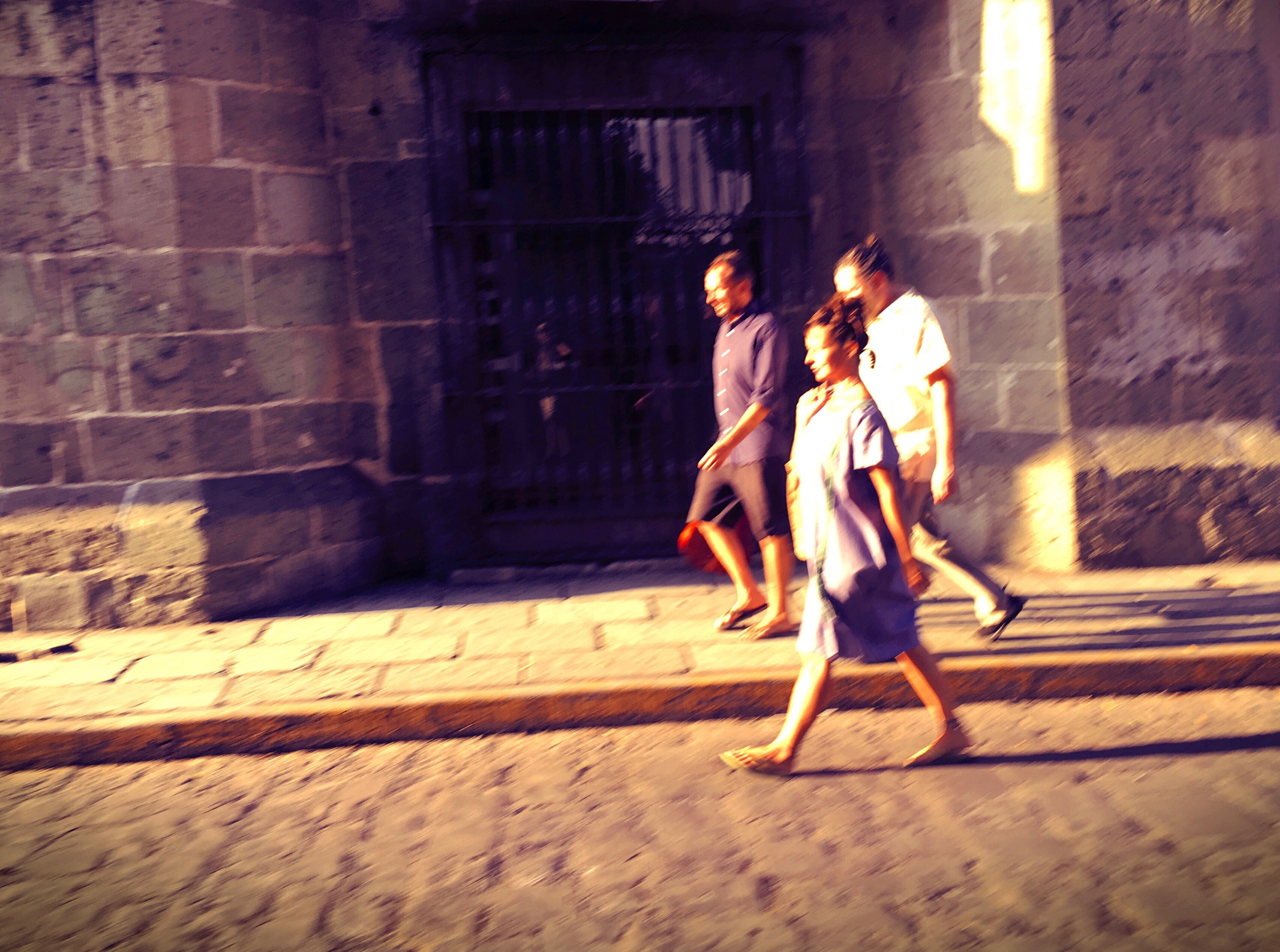
Albums
Other Projects by Members Of This Band

